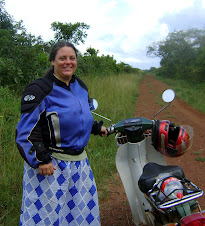Free Medical Outreaches around Masindi Diocese Thanks to Palmetto Medical Initiative of South Carolina, USA, the Diocese of Masindi-Kitara was able to host free medical outreaches in 5 different locations.


More than a thousand patients were treated with high quality and loving medical care. A few of the stories stand out amongst the thousands. One young patient shown here walked in with an open fracture of her arm, and the medical providers surgically removed a large bone fragment that was loose an sticking out of her arm. Lots of types of medical help were provide--surgery, dentisty, outpatient clinic, physical therapy, wound care, eyeglasses, free prescription medicines and even low-cost mosquito nets.
The need for medical care here is huge. We had long lines of hundreds of people seeking care everywhere we went. People line up the night before and wait patiently in hope. Despite the providers seeing well over a thousand patients, still many had to be turned away.

Between all my preparations acting as a liason and set-up person plus staying with the medical team through the outreaches, I'm pretty exhaused. I'm still following up on a few tasks (including following up the older woman patient shown below)
and have already had my first meeting preparing for the next PMI outreach in May 2010. All the work is absolutely worth it, when you consider how many people have been helped. Regina, the woman shown in the gold dress below, certainly would not be alive if not for the medical team and their extraordinary care. She is currently greatly improved and I expect she will be going home soon. Wish I had time now to give

you more of the details. It is almost 1 am here though and I will be giving an intrepretation on the bible reading tommorrow at morning prayers and have lots of other preparations to be working on--such as getting the schedule set for my teaching basic health to future church leaders, giving youth nutrition presentations, and making plans for travel to a zonal meeting of with other health coordinators and lots more. Also, I really need to work on my newsletter and plan for an upcoming trip to the US....Lots to do as a missionary and health coordinator for the diocese. Sorry it has been so long between blog posts--I hope to keep these more updated. That's all for now, but maybe later I'll tell a bit more on the amazing work the PMI team did here.
P.S. Regina has gone from unconsious and in close danger of dying from sepsis on top of uncontroled diabetes to now sitting up on her own in bed and talking easily with her family. Through the care of PMI, Masindi Hosptial, and her family she is recovering greatly. I hope on my next visit we can discuss her discharge and travel home.






















